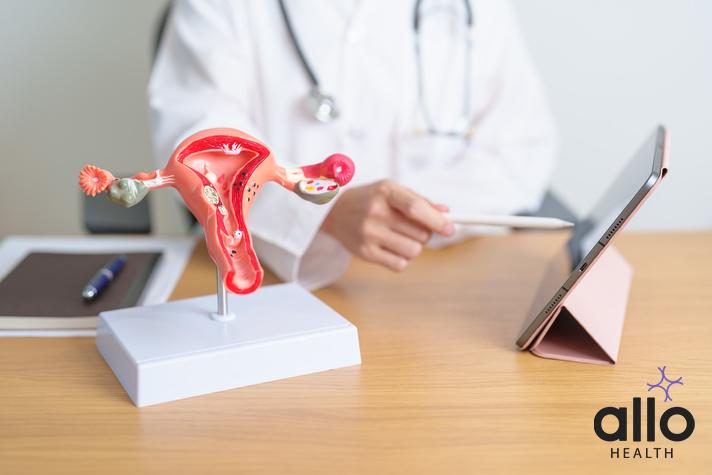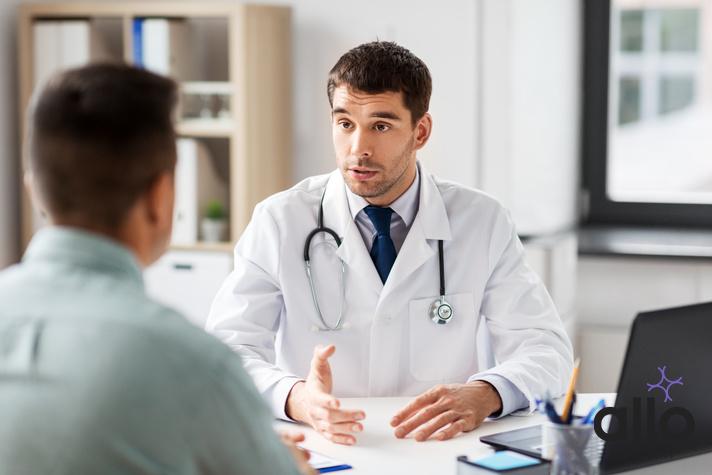What Are The Symptoms And Complications Of Human Papillomavirus (HPV)?

Allo Health is dedicated to personalized well-being, offering support and trusted information tailored to individual health goals. The platform emphasizes human-generated content, led by a distinguished medical team of experts, including physicians and sexual health specialists. Their commitment to credibility involves rigorous fact-checking, authoritative research, and continuous updates to ensure accurate, up-to-date information. Allo Health's unique approach goes beyond conventional platforms, providing expert-led insights and a continuous commitment to excellence, with user feedback playing a crucial role in shaping the platform's authoritative voice.

Dr Sanina Mansoor holds MBBS degree from Yenepoya university,Mangalore.She has 8 years of experience working as a medical officer at various health centres and medical colleges.
Why This Was Upated?
Our experts continually monitor the health and wellness space, and we update our articles when new information became available.
Updated on 26 February, 2025
- Article was updated as part of our commitment to diversity, equity, and inclusion.
"The following blog article provides general information and insights on various topics. However, it is important to note that the information presented is not intended as professional advice in any specific field or area. The content of this blog is for general educational and informational purposes only.
Book consultation
The content should not be interpreted as endorsement, recommendation, or guarantee of any product, service, or information mentioned. Readers are solely responsible for the decisions and actions they take based on the information provided in this blog. It is essential to exercise individual judgment, critical thinking, and personal responsibility when applying or implementing any information or suggestions discussed in the blog."
Human Papillomavirus (HPV) is a prevalent sexually transmitted infection (STI) with various strains that can affect different parts of the body. While many individuals infected with HPV may not experience any symptoms, certain strains of the virus can lead to visible changes, discomfort, and, in some cases, serious health complications. In this comprehensive article, we delve into the symptoms, associated health conditions, and potential complications of HPV infection.
Symptoms of HPV Infection
Genital Warts
- Description: Genital warts are one of the most common symptoms of HPV infection, caused by low-risk strains of the virus, such as HPV types 6 and 11.
- Appearance: These warts typically appear as small, flesh-coloured bumps or clusters on the genitals, including the penis, scrotum, vulva, vagina, or anus.
- Texture: Genital warts can vary in size and texture, ranging from smooth to rough or cauliflower-like in appearance.
- Location: They may occur externally or internally in the genital or anal area, making them visible or detectable during a physical examination.
Abnormal Pap Smear Results
- Description: HPV infection, particularly with high-risk strains such as HPV types 16 and 18, can lead to abnormal changes in cervical cells, detected through Pap smear tests.
- Symptoms: In many cases, HPV infection does not cause noticeable symptoms, but abnormal Pap smear results may indicate the presence of HPV-related cellular changes.
- Follow-up Testing: Women with abnormal Pap smear results may require further testing, such as colposcopy or HPV testing, to assess the severity of the cellular changes and determine the need for additional treatment.
Cervical Dysplasia
- Description: Cervical dysplasia refers to abnormal changes in the cells of the cervix, often caused by persistent infection with high-risk HPV strains.
- Symptoms: Cervical dysplasia may not cause any symptoms initially, but advanced cases can lead to abnormal vaginal bleeding, pelvic pain, or discomfort during sexual intercourse.
- Risk of Cervical Cancer: If left untreated, cervical dysplasia can progress to cervical cancer over time, highlighting the importance of early detection and treatment through regular cervical screening.

Recurrent Respiratory Papillomatosis (RRP)
- Description: RRP is a rare condition caused by HPV infection, primarily affecting the respiratory tract, including the larynx (voice box) and airway passages.
- Symptoms: Symptoms of RRP may include hoarseness, difficulty breathing, stridor (noisy breathing), or recurrent respiratory infections.
- Treatment: Treatment for RRP typically involves surgical removal of the papillomas (wart-like growths) from the airway, often requiring multiple procedures over time to manage symptoms and prevent complications.
Complications of HPV Infection
HPV-Related Cancers
- Description: Persistent infection with high-risk HPV strains, particularly HPV types 16 and 18, is strongly associated with several types of cancer, including cervical, anal, penile, vaginal, vulvar, and oropharyngeal cancers.
- Risk Factors: Factors such as smoking, immunosuppression, and co-infection with other STIs can increase the risk of HPV-related cancers.
- Prevention: HPV vaccination and regular screening for cervical cancer (e.g., Pap smear tests and HPV testing) are essential for early detection and prevention of HPV-related cancers.
Anogenital Warts
- Description: Anogenital warts, caused by low-risk HPV strains, can cause discomfort, itching, or pain, particularly if they occur in sensitive areas such as the genital or anal region.
- Psychological Impact: In addition to physical symptoms, anogenital warts can have a significant psychological impact, leading to embarrassment, anxiety, or distress related to their appearance and potential implications for sexual health.
Pregnancy Complications
- Description: HPV infection during pregnancy can lead to various complications, including genital warts, cervical dysplasia, and an increased risk of vertical transmission to the newborn.
- Vertical Transmission: While vertical transmission of HPV from mother to child during childbirth is rare, it can lead to respiratory papillomatosis in the newborn, highlighting the importance of prenatal care and prevention strategies during pregnancy.
Impact on Sexual Health
- Description: HPV infection and associated symptoms can have a significant impact on sexual health and well-being, affecting intimate relationships, self-esteem, and sexual satisfaction.
- Communication and Support: Open communication with sexual partners, education about HPV transmission and prevention, and access to supportive resources and healthcare services are essential for addressing the emotional and interpersonal aspects of HPV infection.

Risk of Transmission
- Description: Individuals infected with HPV, particularly those with visible symptoms such as genital warts, may be at an increased risk of transmitting the virus to their sexual partners.
- Preventive Measures: Practicing safer sex, including condom use and limiting the number of sexual partners, can reduce the risk of HPV transmission. HPV vaccination is also recommended for both males and females to prevent infection and reduce the spread of the virus within the population.
Human Papillomavirus (HPV) infection can manifest with various symptoms, including genital warts, abnormal Pap smear results, cervical dysplasia, and recurrent respiratory papillomatosis (RRP). Additionally, HPV infection can lead to serious health complications, such as HPV-related cancers, pregnancy complications, and impacts on sexual health and well-being. Understanding the symptoms, associated health conditions, and potential complications of HPV infection is essential for early detection, prevention, and effective management of this common and often asymptomatic STI. Through vaccination, regular screening, and comprehensive sexual health education, we can work towards reducing the burden of HPV-related diseases and promoting overall health and well-being.








































